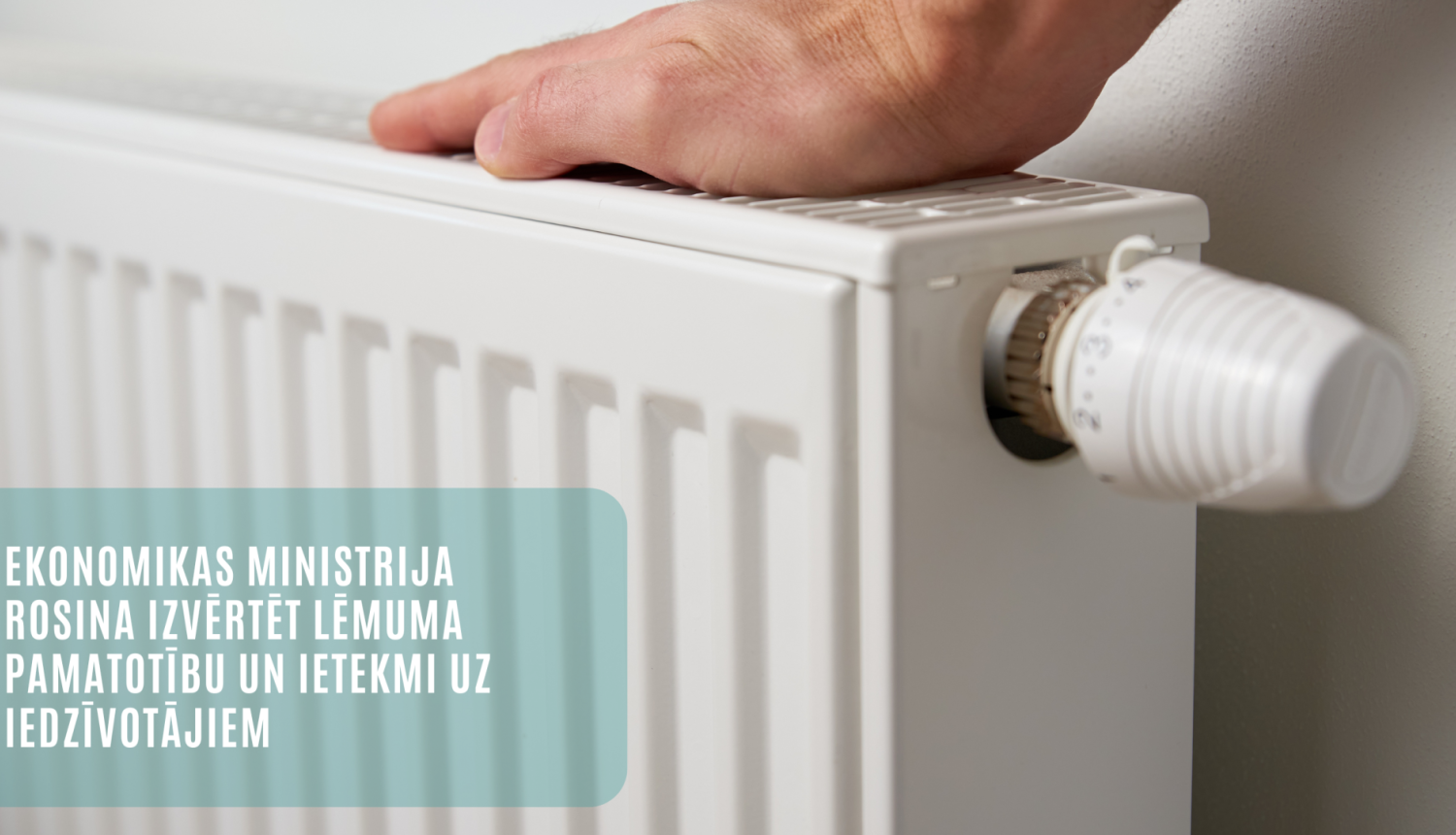Translated using ChatGPT service.
In response to publicly circulated information about a potential increase in the heat energy tariff in Riga, planned for this autumn, the Ministry of Economics is calling on AS “Rīgas siltums,” the Public Utilities Commission (PUC), and the Riga City Council to carefully assess the justification for such a decision and its impact on residents.
The Ministry of Economics clearly states that – before making any decisions – full transparency must be ensured, and all possible alternatives must be evaluated to prevent a price increase. The Ministry expects that both AS “Rīgas siltums” and the regulator will act responsibly and find solutions to protect residents from unjustified cost increases.
“Such a rapid and significant tariff increase is unacceptable. I am categorically against this proposal and expect that urgent alternative solutions will be found to prevent such a price hike within the existing heat energy market framework. A clear and substantiated calculation is needed, along with a genuine effort to seek alternatives that would avoid such a sharp increase in monthly payments for residents. I also expect active involvement from the Riga City Council in resolving the situation,” emphasized Minister of Economics Viktors Valainis.
To prevent an unjustified rise in the heat energy tariff and find solutions that would shield residents from additional financial burdens, the Ministry of Economics has already begun discussions with the involved parties. Today, a meeting was held between the Ministry, AS “Rīgas siltums,” and AS “Latvenergo” management, during which the Ministry clearly expressed its opposition to the proposed tariff increase and demanded that the partners look for real, economically justified solutions to avoid adverse consequences for residents. AS “Rīgas siltums” expressed readiness to review and reduce the tariff.
Currently, the heat energy tariff in Riga is set at EUR 77.77 per megawatt-hour (MWh), while actual costs amounted to EUR 79.82 per MWh. Throughout the heating season, customers paid EUR 74.17 per MWh. The difference of EUR 5.65 per MWh between actual costs and the amount paid by customers consists of EUR 3.60 from the previously accumulated equalization component, and EUR 2.05 in uncovered costs, which are to be included in the new tariff. According to the new tariff proposal submitted by AS “Rīgas siltums,” the tariff could increase to EUR 88.10 per MWh in autumn, while consumers, taking into account changes in market prices, would pay EUR 90.15 per MWh – of which EUR 2.05 accounts for the uncovered costs from the previous tariff period.
The Ministry of Economics highlights that the final decision on tariff changes is made only after the PUC has reviewed and approved the company’s submitted calculations. At the same time, the Ministry calls for all available tools to be used to reduce the tariff’s impact on consumers, including evaluating the efficiency of procurement procedures and exploring options for long-term price stabilization.
The Ministry also reminds that during this heating season, Riga residents already benefited from significant savings – approximately EUR 9.8 million – thanks to the market-based procurement mechanism. Additionally, the tariff in Riga during this period was lower than, for example, in Vilnius.
Given the dynamics of energy resource prices and the current market situation, the Ministry of Economics stresses the need to seek solutions that ensure affordable heating for Riga’s residents going forward.



